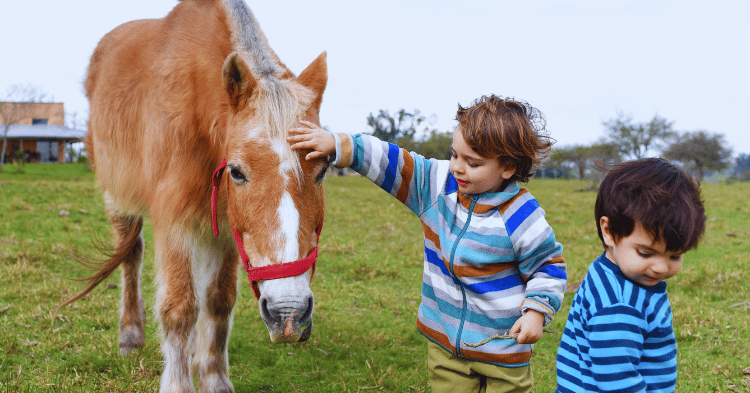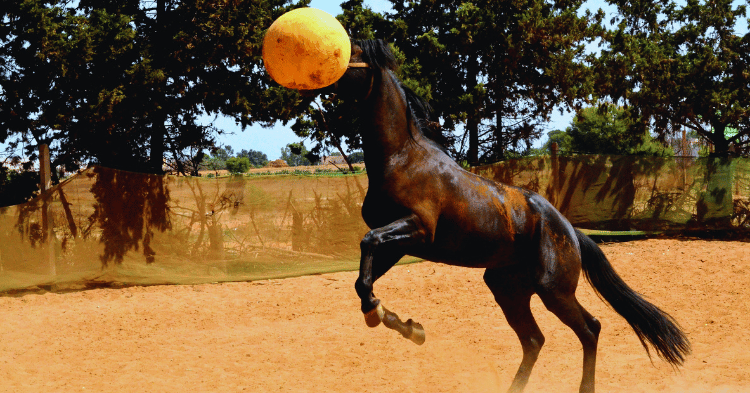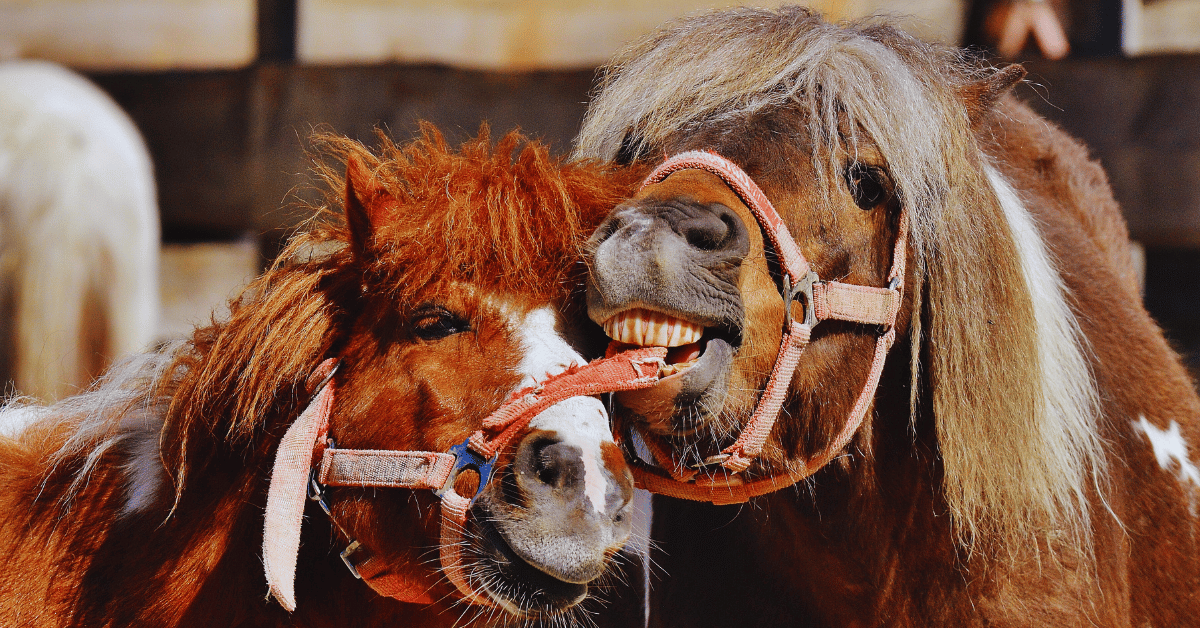Have you ever called out to your horse, only to see their ears perk up or their head turn your way? It’s a heartwarming moment that sparks the question: Do horses know their names? While horses may not grasp names in the human sense, they are incredibly intelligent animals capable of associating specific sounds with rewards, routines, and relationships. Your horse’s reaction isn’t mere coincidence; it’s a reflection of their ability to learn and recognize patterns in their environment.
This remarkable cognitive ability goes beyond name recognition. Horses can interpret subtle cues, solve problems, and even remember past experiences for years. By understanding their intelligence and communication style, you can deepen your connection with your horse and tap into their full potential. Dive into this guide to explore how horses process information and how you can use their innate smarts to build a stronger bond.
Understanding Horse Behavior
Horses showcase a wide range of behaviors and communication abilities that reflect their intelligence and sensitivity to their environment. To grasp whether horses know their names, it is important to first understand their overall behavior and how they respond to vocal cues.
Communication Abilities of Horses
Horses are social animals that rely heavily on communication within their herd and with humans. They use a combination of vocalizations, body language, and facial expressions to convey messages.
- Vocalizations: Horses utilize various sounds, such as nickers, whinnies, and snorts, to communicate with each other and with humans.
- Body Language: Gestures like ear positioning, tail movement, and overall posture indicate a horse’s mood and intentions.
- Facial Expressions: The eyes, nostrils, and lips of a horse can reveal a lot about their emotional state and intentions.
Studies on horse intelligence have revealed that they are capable of learning and have excellent memories. Recent research demonstrated that horses could learn the meaning of symbols and communicate their wishes by touching symbol boards with their noses.
Behavioral Responses to Vocal Cues
Horses are highly attuned to the moods and behaviors of the people around them and can recognize who is talking to them, even if their name is not used. Their responses to vocal cues are influenced by several factors:
- Familiarity: Horses can learn to recognize and respond to familiar voices. They may react differently depending on whether the person is someone they know and trust.
- Tone of Voice: Horses respond more favorably to calm, gentle tones compared to harsh or loud commands.
- Association with Positive Experiences: Horses may associate certain vocal cues, including their names, with positive experiences such as food or attention. This association encourages them to respond appropriately when their name is called.
Training a horse to recognize and respond to its name involves consistent training methods, such as combining training coming from the field, sessions with the horse at liberty, using food reinforcers, and mixing up rewards to reinforce desired behavior (Quora). For more in-depth understanding of horse behavior, visit our article on do horses know when they are going to die.
Understanding these elements can help horse owners create a strong communication bond with their animals, ensuring effective training and enhanced welfare. For common questions like do horse sleep lying down and do horses laugh, our blog provides knowledge to enrich your understanding of horse behavior and care.
Can Horses Recognize Their Names?

Factors Affecting Name Recognition
Horses have shown an ability to recognize their names, although their response may not be as consistent as that of dogs. There are several factors that can affect a horse’s ability to recognize and respond to their names:
Positive Associations: Horses often associate their names with positive experiences, such as receiving food or attention. This can encourage them to respond when their names are called (Quora).
Consistency: The frequency and consistency with which a horse’s name is used can greatly impact their ability to recognize it. Repetition helps solidify the association between the sound of their name and the expected response.
Training Techniques: The methods used to train a horse can influence their name recognition. Techniques that involve positive reinforcement, such as treats or praise, are often more effective.
Environmental Cues: Horses are sensitive to their surroundings and the behaviors of people around them. They can recognize who is talking to them and may respond to vocal cues even if their name is not used directly.
Training Horses to Respond to Names
Training a horse to recognize and respond to its name involves consistent use of specific techniques to reinforce desired behaviors. Here are some effective methods:
Positive Reinforcement: Using treats or praise when the horse responds to its name can build a positive association. This encourages the horse to respond more consistently.
Repetition and Consistency: Regular training sessions where the horse’s name is used consistently can help engrain the recognition. It’s important to be patient and ensure training sessions are short and pleasant.
Combining Techniques: Training should not only occur during formal sessions but also during everyday interactions. For example, calling the horse’s name while feeding or grooming can reinforce the association.
Environmental Variation: Mixing up the environment in which the training occurs can help the horse generalize the recognition of its name in different contexts.
| Training Method | Description | Effectiveness |
|---|---|---|
| Positive Reinforcement | Using treats or praise | High |
| Repetition | Consistent use of the name in training | Moderate |
| Everyday Interaction | Incorporating name use in daily activities | High |
| Environmental Variation | Training in different settings | Moderate |
Training sessions combining these methods are more effective in helping the horse learn and remember its name. For more detailed information on training techniques, check out our section on consistent training methods.
By understanding the factors that influence name recognition and employing effective training strategies, horse owners can enhance their horse’s ability to respond to their name, building stronger communication and trust. For more about this topic, read our comprehensive guide on can horses recognize their names.
Insights from Research Studies

Studies on Horse Intelligence
Research on horse intelligence reveals that these animals exhibit highly intelligent behavior, learning and remembering a variety of commands and signals. Studies demonstrated that horses could understand symbols and communicate their wishes by touching symbol boards with their noses (Quora). This finding not only showcases their ability to learn but highlights their cognitive capacity and complex communication skills.
Horses have also shown a capacity for emotional understanding. A study examining their responses to vocalizations found that horses demonstrated a right-ear/left-hemisphere bias when exposed to positive versus negative voices. This suggests they perceive human laughter more positively compared to growling.
Here’s a summary of horse capabilities based on various studies:
| Capability | Study Insights |
|---|---|
| Learning Symbols | Horses can learn the meaning of symbols and communicate their wishes (Quora). |
| Memory | Horses have excellent memories and can remember various commands and signals. |
| Emotional Perception | Horses demonstrate biases in how they perceive positive and negative human vocalizations. |
Relationship Between Horses and Humans
The bond between horses and humans has been the subject of various research studies. This relationship is often characterized by trust, communication, and emotional connection. Training horses to recognize their names, for instance, involves consistent use and positive reinforcement, such as treats or praise.
This human-horse relationship is strengthened through daily interactions, training sessions, and mutual care. Horses often respond to their owners’ emotional states, showing empathy and understanding. This deep connection emphasizes the importance of consistent training methods and the role of positive reinforcement in maintaining a healthy and trusting bond.
For horse owners seeking to enhance this relationship, consider exploring:
By understanding and appreciating the intelligence of horses, owners can better tailor their training and care techniques, leading to a more harmonious relationship.
Training Techniques for Name Recognition
Effectively training horses to recognize and respond to their names involves specific techniques that leverage their intelligence and sensitivity.
Consistent Training Methods
Consistency is crucial when training a horse to recognize its name. They possess the ability to learn and remember various commands and signals through repeated exposure (Quora).
Use consistent methods such as:
- Field Training: Include training sessions while bringing the horse from the field. Use its name frequently and consistently.
- Liberty Training: When the horse is free, call its name and reward it when it responds.
- Short Sessions: Keep training sessions brief and pleasant to maintain the horse’s interest (Quora).
- Repetition and Reinforcement: Regularly use the horse’s name along with a specific signal or cue to strengthen association.
| Training Method | Description |
|---|---|
| Field Training | Using the horse’s name while leading it from the field. |
| Liberty Training | Calling the name while the horse is free, rewarding responses. |
| Short Sessions | Ensuring training is brief and enjoyable. |
| Repetition & Reinforcement | Consistently using the name paired with cues. |
Importance of Positive Reinforcement
Positive reinforcement is vital in the training process. Horses respond well to rewards, which can range from treats to verbal praise. Reinforcing the desired behavior in response to their name solidifies the connection.
- Treats: Small and healthy treats can be given each time the horse responds correctly.
- Verbal Praise: Gentle and encouraging words help the horse associate name recognition with positive experiences.
- Mixed Rewards: Varying the type of rewards keeps the horse engaged and attentive.
| Reward Type | Examples |
|---|---|
| Treats | Carrots, apples, hay cubes |
| Verbal Praise | “Good job!”, “Well done!” |
| Mixed Rewards | Alternating between treats and praise |
Employing these training techniques ensures that horses not only recognize their names but also respond consistently. Visit our article on tips for training horses for additional information. Utilizing these methods can enhance the bond between horse and owner, demonstrating the intelligent behavior horses are capable of (Nature).

